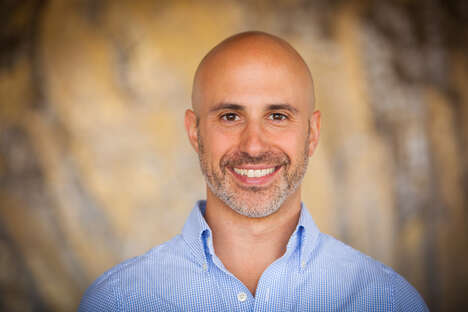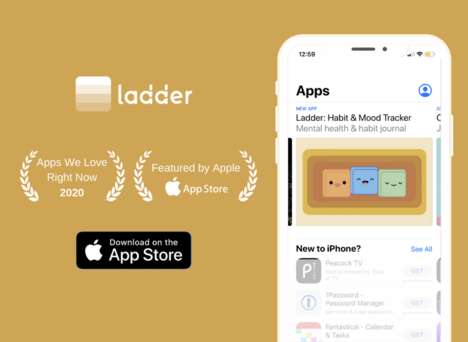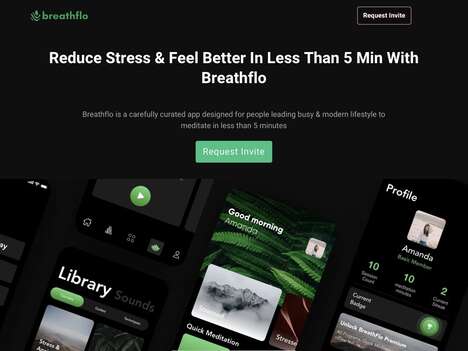Understanding Psychedelic-Assisted Therapy
An Interview with Field Trip Cofounder Ronan Levy
Related Trend Reports
Fashion, Health, Lifestyle, Marketing, Mobile, Romance, Social Good, Tech, Youth Field Trip Health offers psychedelic therapies that give those struggling with depression and other conditions a new avenue of treatment—consisting of medically supervised sessions that are integrated with a relaxing spa-like experience. Meant to provide an alternative to traditional treatments that patients have had limited success with, Field Trip guides its clients through a mind-opening experience that can offer long-lasting benefits. To learn more about Field Trip’s launch, how its integrative approach to wellness works, and the benefits of psychedelic therapies, we spoke with Cofounder and Executive Chairman Ronan Levy.
Field Trip Health offers psychedelic therapies that give those struggling with depression and other conditions a new avenue of treatment—consisting of medically supervised sessions that are integrated with a relaxing spa-like experience. Meant to provide an alternative to traditional treatments that patients have had limited success with, Field Trip guides its clients through a mind-opening experience that can offer long-lasting benefits. To learn more about Field Trip’s launch, how its integrative approach to wellness works, and the benefits of psychedelic therapies, we spoke with Cofounder and Executive Chairman Ronan Levy. How has the legalization of cannabis in Canada helped to pave the way for Field Trip?
The legalization of cannabis in Canada certainly helped pave the way for Field Trip in two important ways. For one, it changed attitudes towards once highly stigmatized drugs like cannabis and now psychedelics. This attitudinal shift has occurred both on a medical as well as a social level. As we witnessed firsthand through building Canadian Cannabis Clinics, the medical community in Canada has now largely embraced cannabis as a potent therapeutic tool. This leap will be easier for the medical community to make to psychedelics, particularly with the science and evidence continuing to be so strong. Secondly, because Canada has been the home of cannabis finance, many successful cannabis investors see similar potential in psychedelics. As a result of these factors and the proven potential behind psychedelics, Field Trip has been received very positively from the Canadian financial industry.
Field Trip offers an integrative approach to mental wellness, can you explain what this entails?
What makes psychedelic therapies so unique is the level at which they require the interplay of both the psychedelic drug being used with the therapy and the “set and setting” of the experience. This describes the preparation and mindset that a person brings into the experience, along with the location, aesthetics and other aspects of the setting of the experience. At Field Trip, we are relentless in our pursuit of finding the perfect balance and combination of the psychedelic experience with set and setting. It’s also central to our business model—Field Trip is comprised of our Field Trip Discovery division, which is advancing the next generation of psychedelic molecules, and Field Trip Health, which is building the physical spaces for psychedelic therapies with locations in Toronto, New York, Chicago, LA, and planned locations in Houston, Atlanta and Amsterdam amongst others.
How does Field Trip select its therapists, and what kind of training do they receive to effectively guide their patients through these experiences?
As we are focused on delivering the best possible experience and therapeutic outcomes, we are also highly focused on finding the highest quality therapists to oversee your experiences. Most of our therapists have training in psychedelic therapies, but we also provide a rigorous training program for all therapists who work in our Field Trip Health centers.
How are patients assessed for treatment and deemed eligible for psychedelic treatment?
As there is a long history of the use of psychedelics, including ketamine, they are known to generally be safe and have low addiction risks. That said, every person who participates in our psychedelic therapies is screened by a psychiatrist as well as a GP to ensure that ketamine-assisted therapy is appropriate before treatment starts. Given the general safety of psychedelic therapies, most people will qualify for treatments unless they have certain contraindications, such as schizophrenia or uncontrolled high blood pressure (as ketamine can temporarily increase blood pressure), unless a jurisdiction places more restrictive requirements on who may qualify for treatment.
What benefits can be achieved through psychedelic treatments with Ketamine, and how does the therapeutic guidance offered by Field Trip enhance this?
The evidence around ketamine for our mental and emotional health is primarily in depression. In fact, the former Director of the National Institute of Mental Health in the US once commented that ketamine “The most important breakthrough in antidepressant treatment in decades.” However, the benefits of ketamine-assisted therapy, as with most psychedelic-assisted therapies, extends beyond relief from, or resolution of, depression symptoms and includes such beneficial side effects as increased creativity, empathy, connection to the planet, and openness to other people’s views.
As for why the therapy enhances the effect of ketamine or other psychedelics relates to the mechanism of action of psychedelics. Beyond being fast-acting antidepressants, psychedelics also often cause people to reflect on and see past experiences or traumas in a new light, thereby enabling them to process the emotions around those events more effectively. Also, much like how young children have greater neural plasticity to, say, learn a new language, following a psychedelic experience, adults often experience a period of neural plasticity that lets them incorporate and embody the benefits of cognitive behavioral therapy techniques more deeply. So, not only are they able to process their emotions more effectively, they are also more able to adopt new mindsets, attitudes, and behaviors.
In which ways do you expect psychedelic therapy to evolve in the next few years?
Over the next few years, the adoption of psychedelic therapies is going to accelerate. This will happen because of continued research showing the incredible efficacy and safety of psychedelic therapies, the approval of new drugs (MDMA is expected to receive FDA approval in 2023, psilocybin in 2025), and political changes as more jurisdictions adopt programs to allow access to psychedelic therapies—such as Oregon did with the passage of Measure 109 this past November. With time, I expect that psychedelic therapies are going to displace most current approaches to psychiatry given their safety, efficacy and interest from people all over the world.
References: fieldtriphealth
Featured Articles

Mental Health Awareness Glasses
Planet CB by Coco & Breezy x Zenni Supports Black Youth

Paid Employee Outdoor Time
Canada Goose's HumanNature Pass Encourages Employees to Go Outside

Holistic Well-Being Apps
The 'Ladder' Personalized Wellness App Tracks Emotions, Thoughts and More

Dating App Meditations
Hinge and Headspace are Offering 2 Guided Meditations to Help Date Anxiety

Data-Driven Mental Health Apps
The 'Mooditude' App Uses the Same Tools as Clinical Psychologists

New Parent Mental Health Apps
The Gidget App Helps Those Struggling with Perinatal Depression

Minimal Commitment Meditation Apps
The 'Breathflo' App is Targeted Towards Time-Poor Consumers

Physician-Operated Telehealth Networks
Livecare Provides Extensive Healthcare Services Online

Virtual Fatigue Campaigns
Zoom and the American Heart Association are Working to Battle Fatique